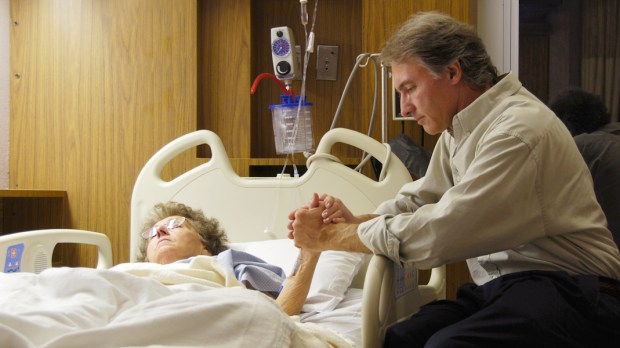At a time when medical advancements are taking parts of the world to new heights, there are certain constant questions that keep coming up about end-of-life care. Here are three:
If I’m a medical proxy, am I bound to fulfill any request made by my loved one?
If a loved one asks you to be their medical proxy, it is fundamental that you are clear about his or her wishes. It’s also important for you to indicate what your own beliefs are and what you can or cannot consent to, in terms of your own conscience.
In spite of any possible requests from the patient (or other loved ones), you cannot in any way, or in any situation for any reason, betray moral truth, authentic human dignity, or your own conscience formed in truth. As a Christian believer, this is a non-negotiable.
Since they are a part of basic human care, when is it possible to suspend nutrition and hydration?
Every human person has dignity and a human vocation, a call to live and cherish our shared humanity. This acknowledgment of human dignity, and of our solidarity as human beings with one another, demands that we generously provide basic human care, which includes food and water (even if administered artificially). If these basic needs are suspended, then we are starving or dehydrating a person to death. This would be euthanasia since it is the deprivation of food and water that is causing death, rather than the person’s illness or medical condition.
The only time that food and hydration can be suspended is when a person’s body is unable to assimilate them and/or the food and water actually cause harm to the person. In these cases, the good offered by food and water would not be serving any good and so they must be suspended. In such a situation, the suspension of food and water would not be euthanasia since the person’s medical condition is causing death, not the suspension of food and water.
This last point must be emphasized. In the discernment of when to suspend nutrition and hydration (even if artificially administered), the rule of thumb is the pressing question: What will cause the death of this person? If death occurs because of the removal of food and water, then it is euthanasia. If, however, death is caused by the person’s medical condition or illness, then it is not euthanasia (even if food and water had to be suspended toward the end of life because of the illness and the inability of the body to assimilate them).

Read more:
Frenchman Vincent Lambert dies after being removed from life support
What if pain medication ends up taking a person’s life? Is that euthanasia?
If someone gives an intentional and purposeful overdose of pain medication to a suffering person with the hope of ending life, then the act is clearly euthanasia.
But most people do not fall into the scenario just described. Most people have good will and want to do the right thing and make sure their loved one isn’t suffering. Here’s a helpful principle for such situations: the level of pain medication can be given to match the level of a person’s pain.
In applying this principle to people who are suffering intensely, it may happen that the pain medication will cause the loss of mental capacity and hasten the person’s death. In such a case, the determining factor regarding the moral status of the person or proxy’s action is whether the intention was to take life or solely to lessen pain, even if there was the foreseeable but unintended consequence of the loss of life.

Read more:
Does the Church expect us to suffer instead of “dying with dignity”?
Fr. Jeffrey Kirby is the Moral Theologian of the Diocese of Charleston, SC, and Pastor of Our Lady of Grace Parish in Indian Land, SC. He is the author of the recently released book, We Are the Lord’s: A Catholic Guide to Difficult End-of-Life Questions.

